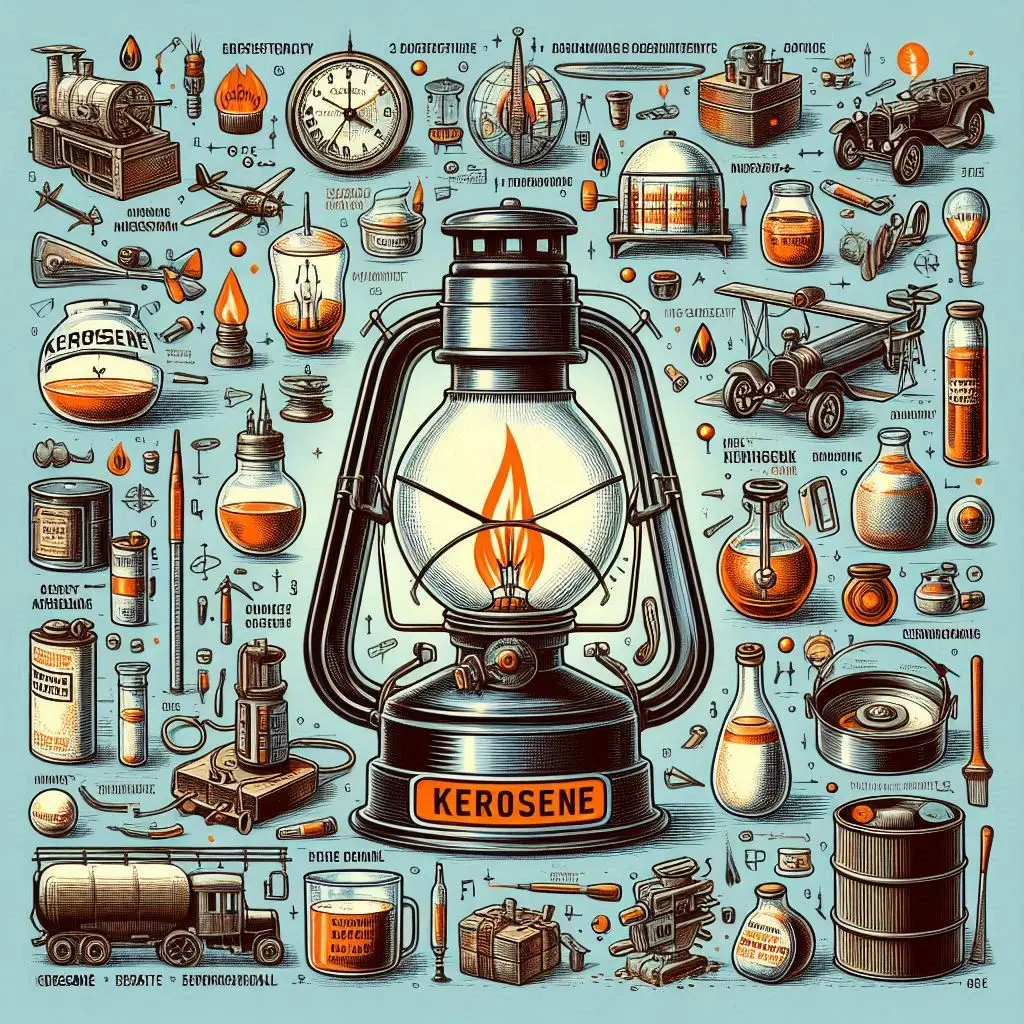
What is kerosene used for
This article, what is kerosene used for, examines the many applications of kerosene, from its historical relevance to its modern usage.
The relevance of kerosene is multifaceted; it has been used historically for lighting and is now used in aircraft, heating, cooking, and industrial activities. Its adaptability to changing social requirements and energy density have made it a dependable source of energy for a variety of applications. Kerosene is still essential in many industries, even though there is a rising focus on cleaner and renewable energy sources. This is especially true in areas where there may not be many possibilities for alternative energy. In order to mitigate the environmental effects of kerosene use and maintain a balance between energy consumption and environmental preservation, it is imperative that technological advancements be made in the search for sustainable alternatives.
Although kerosene has been essential to many facets of human existence, its effects on the environment and human health must be recognized. A worldwide commitment to sustainability and a better future is reflected in the continuous transition towards cleaner energy choices. Governments, businesses, and people must work together to strike a balance between the need to reduce kerosene's harmful impacts and its practical value. The adoption of cleaner energy technology and the promotion of sustainable habits are critical measures in reducing the negative effects of kerosene consumption on the environment and human health. By doing this, society may advance toward a more just and sustainable energy environment.
The multipurpose hydrocarbon liquid kerosene has been an essential resource for many uses throughout history and is now very important to contemporary culture.
Historical Context: Abraham Gesner was the first to distill kerosene from coal in the early 1800s, marking the beginning of the petroleum's history. But kerosene became widely used when it took the role of whale oil as the main source of lighting in the middle of the 19th century. This was a significant change that made illumination more accessible and effective for households and businesses worldwide.
Lighting: Historically, one of kerosene's main use has been as a fuel for lights and lanterns. It was a sensible and affordable option for lighting in the absence of electricity due to its high energy density and affordable price. Kerosene lamps were still used in isolated locations and during power outages even as electric illumination grew more commonplace.
Heating: Kerosene has been used extensively as a fuel for heating, particularly in areas where other energy sources are costly or unavailable. In homes, workplaces, and construction sites, portable kerosene heaters are often used as a dependable source of warmth throughout the winter months.
Cooking: Kerosene is an essential cooking fuel in many regions of the globe, especially in underdeveloped nations. For areas without access to modern cooking facilities or where traditional biomass fuels provide health and environmental problems, kerosene stoves and cookers provide a dependable and cost-effective option.
Aviation: Kerosene, in the form of jet fuel, is a major component of the aviation industry. The thrust needed for flight is produced by the efficient burning of kerosene in jet engines, which are used in both military and commercial aircraft. Kerosene's high energy content makes it the perfect fuel for aircraft, allowing for long-distance flight with very little fuel weight.
Beyond the aviation industry, kerosene finds use in a variety of military settings. It is used as fuel for military vehicles, generators, and sometimes as a component of certain explosives. Kerosene is a suitable alternative for military operations in a variety of conditions due to its energy density and stability.
Industrial Processes: A variety of industrial processes use kerosene. In the production of certain compounds, such as fertilizers and insecticides, it serves as a solvent. It is useful in cleaning and degreasing applications in sectors like manufacturing and maintenance because of its broad dissolution range.
Environmental Impact: Although kerosene is widely used, its effects on the environment cannot be disregarded. Kerosene burning contributes to air pollution and climate change by releasing carbon dioxide (CO2) and other pollutants into the environment. Energy-intensive procedures are also used in the extraction, refinement, and transportation of kerosene, which increases carbon emissions. As the globe struggles with the effects of climate change, switching to greener, more sustainable energy sources is becoming more and more important.
Health Concerns: Using kerosene for cooking and heating has serious health hazards in certain areas, in addition to its negative effects on the environment. Carbon monoxide, an odorless, colorless gas that may cause major health problems or even death when breathed, can be produced when kerosene is not completely burned. Long-term exposure to kerosene fumes has been linked to many health concerns, including respiratory disorders, especially in homes with inadequate ventilation.
Alternative Energy Sources: There is a drive to use more environmentally friendly and sustainable alternative energy sources as public awareness of environmental and health concerns rises worldwide. The use of renewable energy sources including solar, wind, and hydroelectric power is growing as a practical substitute for conventional fossil fuels like kerosene. In order to encourage the broad use of these cleaner energy options, governments and organizations across the globe are investing in infrastructure and research.
Economic and Social Aspects: The usage of kerosene has social and economic effects as well, especially in developing nations. For low-income families, the price of kerosene may be a major financial burden that lowers their standard of living in general. Making the switch to cleaner energy sources may benefit communities by lowering energy costs and enhancing general well-being in addition to addressing environmental and health problems.
https://www.novintrades.com/products/3?title=kerosene

